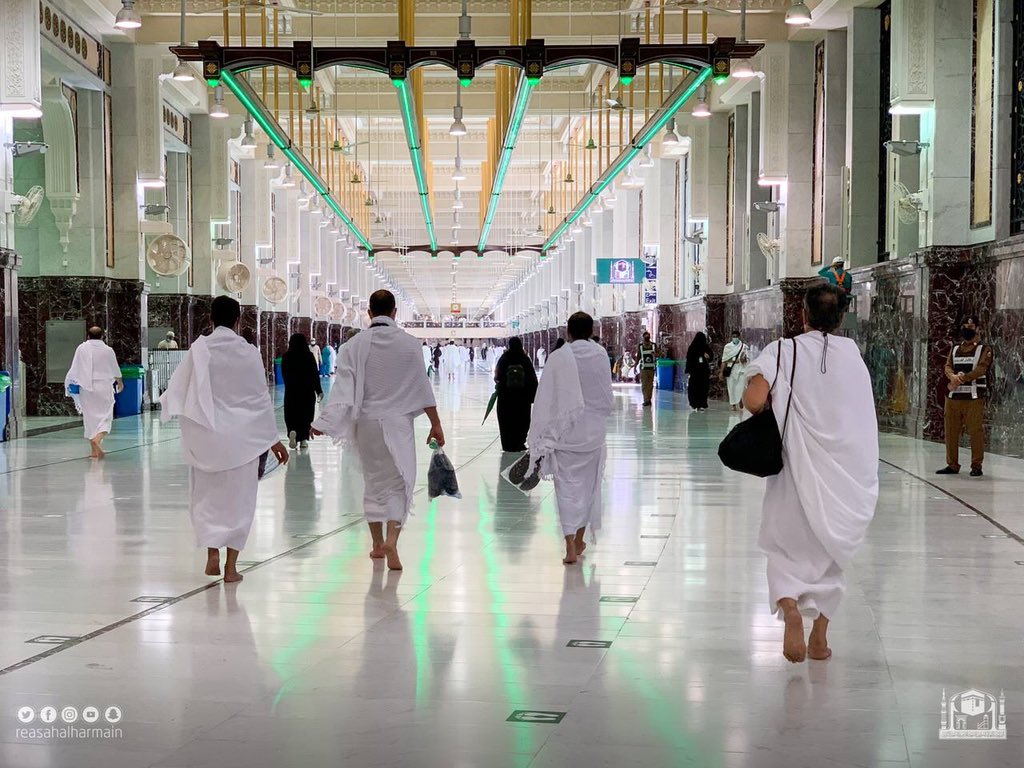News
Is SAHUC Monopolising Hajj? South African Pilgrims Caught in the Middle

For South African Muslims, the journey of Hajj is one of life’s most sacred milestones, a spiritual duty often planned for years, if not decades. But as the 2026 pilgrimage approaches, a storm is brewing. The South African Hajj and Umrah Council (SAHUC), long the body tasked with regulating Hajj affairs, is under fire. Critics accuse it of monopolising Hajj operations in a way that could reshape and potentially raise, the cost of pilgrimage.
The controversy comes after the Saudi Ministry of Hajj and Umrah (MOHU) introduced sweeping new directives. While meant to streamline and modernise the pilgrimage process, the changes have sparked anxiety in South Africa’s Muslim community, with questions about fairness, transparency, and the future of local travel operators.
What’s Changing for Hajj 2026?
Saudi Arabia’s new framework requires all countries to comply with strict regulations, including:
-
Hajj Quota: South Africa has been allocated 2,500 pilgrims for 2026 (1447 AH).
-
Digital Payments: All contracts and payments must go through the Nusuk Masar platform, no outside transactions are allowed.
-
Service Providers: SAHUC can contract only two providers for accommodation and catering, all managed through Saudi-approved companies.
-
Transport: Only Saudi-licensed bus companies or the Saudi Railways may be used.
-
Qurbani: Sacrificial animals must be purchased exclusively through the official Adahi Project.
On paper, the rules sound like an attempt to modernise and regulate. But for many South Africans, the question is whether SAHUC is now positioned as the sole gatekeeper of Hajj.
“Full Control Over Hajj Operations”, The Backlash
The backlash began with a Democratic Alliance (DA) application under the Promotion of Access to Information Act (PAIA). The DA warned that SAHUC appeared to be taking “full control over Hajj tour operations,” forcing travel operators to fall in line or risk being pushed out of business.
The Sunni Jamiatul Ulama (SJU), one of SAHUC’s founding members, went further, accusing the council of trying to turn itself from a regulator into a business competitor. They argue this move not only violates competition law but threatens the livelihoods of operators who have served pilgrims for decades.
SJU spokesperson Mohamed Tariq put it bluntly:
“If SAHUC becomes the sole operator, who will regulate SAHUC?”
SAHUC’s Response: “We’re Just Following the Rules”
SAHUC has strongly denied claims of monopolisation. Its president, Moaaz Casoo, insists the council is simply implementing MOHU’s directives and has no intention of profiting.
Casoo also pointed out that local operators were invited to submit proposals for Hajj 2026, though only three did so. According to SAHUC, some operators chose not to participate, instead lobbying against the new model.
The council stresses that its mission-based system remains focused on pilgrims’ needs, including:
-
Support on the ground in Saudi Arabia
-
Group benefits and negotiated packages
-
Guidance and medical care for pilgrims
Still, the trust deficit is clear. For many in the Muslim community, SAHUC’s role feels less like a facilitator and more like a gatekeeper.
The Digital Shift: What About the Nusuk Masar Platform?
At the heart of the controversy is the Nusuk Masar platform, Saudi Arabia’s new one-stop system for payments and bookings. While efficient on paper, critics warn it could disadvantage South African pilgrims:
-
Losing Queue Positions: More than 50,000 South Africans currently in the Hajj queue could lose their place if the system restarts. Some have already been waiting nearly a decade.
-
Full Upfront Payment: Pilgrims may have to pay the entire Hajj cost upfront, limiting flexibility.
-
No Local Negotiation: Without SAHUC negotiating, hotel and transport costs may rise.
-
Less Guidance: Pilgrims risk losing the hands-on support of local operators who guide them through the complex process.
Early comparisons suggest that Nusuk platform packages are pricier than what South Africans have historically paid through SAHUC and travel operators.
A Battle Over Trust and Transparency
The tension is as much about trust as it is about rules. The DA and SJU have both questioned SAHUC’s accountability and legal mandate, with the SJU even challenging whether SAHUC has the authority to enter agreements with Saudi authorities at all.
For ordinary South African Muslims, though, the legal back-and-forth may feel distant. What matters most is whether the system will make Hajj more accessible or more exclusive. On social media, some pilgrims have expressed frustration:
-
“We already wait 8–10 years for our turn. Now they want us to start from scratch?”
-
“Hajj is supposed to be spiritual, not a monopoly.”
-
“If SAHUC is just following Saudi rules, why are operators being squeezed out?”
What Comes Next for Pilgrims?
The debate over SAHUC’s role is far from over. The DA has pushed for government intervention, while the SJU is exploring legal avenues. SAHUC, meanwhile, says it will continue engaging operators and the community to find a resolution.
For now, pilgrims are caught in the middle of a tug-of-war between regulators, politicians, and operators. The sacred journey of Hajj, which should be about faith, unity, and sacrifice risks being overshadowed by bureaucracy and power struggles.
For South Africans preparing for Hajj 2026, the situation is fluid. One thing is certain: the way Hajj is organised and experienced is changing. Whether that change benefits or burdens pilgrims will depend on how SAHUC, operators, and the Saudi authorities balance efficiency with fairness, and regulation with accountability.
As one community elder in Lenasia remarked after Friday prayers:
“We just want a system that puts Allah’s pilgrims first, not politics.”
{Source: IOL}
Follow Joburg ETC on Facebook, Twitter , TikTok and Instagram
For more News in Johannesburg, visit joburgetc.com

























